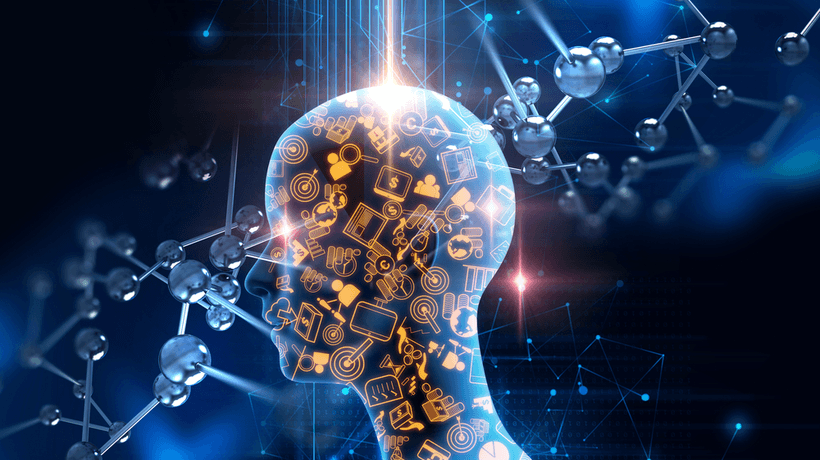Working With AI In Your Job, Think About It
The 4th Industrial Revolution [1] has begun to have a significant influence on the global workforce. One such influence is the changes to the important skill sets of the global workers of the coming years. A report released by the World Economic Forum stated that technology skills will be about one-third of the most important skill sets in 2025. They went on to acknowledge that those skills are not yet considered imperative for the jobs of today. The time has come to begin to think about what those skills might be and begin to develop and deliver the courseware that enables them.
Artificial Intelligence Technology
One of the most impactful emerging technologies is artificial intelligence (AI). Currently, the artificial intelligence technology market is just short of 60 billion USD in 2021. That figure is forecast to grow at a compound annual growth rate (CAGR) of over 28% for the next five years, totaling just short of 230 billion USD in 2026. A recent discussion about calculating the benefits of AI systems was quite enlightening. While still early on in the operational deployment of AI systems, early metrics suggest the modeled AI system is six times more accurate/effective than humans. As AI systems incorporate machine learning (ML) and the ability to explain the systems' decisions/actions, the use of AI systems will likely accelerate beyond some of the current estimates.
Gartner published a piece of their research that found 75% of jobs had more than 40% of their required skills change. Additionally, in a 3-year period of time, 43% of employees learned a new-to-world skill. StreetDirectory [2] identified the following 10 skills for the new world of work:
- Communications
- Creativity
- Technology
- Team Work
- Flexibility
- Information Management
- Self-Management
- Customer Care
- Character
- Personal Development
Given this list, it is clear we have our work cut out for us. Developing, maintaining, and fine-tuning those 10 skills are required if we are to retain our value to our employer(s). At this point, the focus of this work is technology. With all the advances in technology, one that clearly stands out from the others in terms of impact is artificial intelligence. Numerous organizations have begun to research and examine the likely repercussions AI will have on the global workforce.
Key Questions To Keep In Mind
Examining these efforts, a number of issues created the following key questions:
- What should we expect from those systems?
- Are our vocal inflections and voice tones assessed?
- How do we question the decisions of these AI systems?
- Will facial expressions also be examined by AI systems?
- How much trust should be placed in their recommendations?
- How will these systems impact my profession and career path?
Given the capabilities of these systems and the other underlying emerging technologies that are in the rapid state of advancement, answers are sparse and some are even changing some of our mental models. Much of the information required to answer these questions will have to come from the developer of the AI system being used and gained through experience. They should be thoroughly tested and their operational capabilities and accuracy objectively evaluated and disclosed. As the technology matures and becomes more commonly used, standards will likely evolve that address the operational integrity as well as proper AI/human interaction. Until then, there will be differences between these systems, and it is likely we will need to become familiar with more than one AI system’s operational capabilities, accuracy, objectivity, and interactive anomalies.
Insight: AI-enabled adaptive learning capabilities are a growing area in research and development activities. This will likely become one of many AI components in the comprehensive learning systems of the not-so-distant future.
Examining AI systems in education, they had a global market of only around 2 billion USD back in 2019. These capabilities have begun to create change in education. The development of AI-empowered educational games, AI-enabled learning experiences, and what is being referred to as an AI-enabled teachers' assistant will continue to expand their use in K-12 through LLL (Life-Long Learning) environments. As an educational professional, how would you feel if one of these AI-enabled teachers' assistant systems were to correct something you said live before your students? All of this would likely cause the global market for AI systems in education to at least double in the next few years. This would create the need for educators to develop knowledge about AI technology and interaction skills with AI systems.
Insight: AI educational support will likely be used in complex technical subject matter, such as STEAM (science, technology, engineering, arts, math), and this will clearly have a role in eLearning. For example, AI is already being integrated into art, and it has even begun to create art (computational creativity).
Conclusion
AI will continue to bring change in education and the world beyond. All professionals would be well advised to take advantage of the opportunity to get involved with AI in education and its capabilities at this early stage. Once again, AI is just one of the seventeen rapidly emerging technologies that have been identified as having substantial disruptive potential across a number of industries including education. Clearly, these seventeen emerging technologies are shaping many aspects of the future educational environment, and this will have a substantial impact on the world. One thing is certain, embracing life-long learning personally and professionally, supported by world-class training is necessary and will assist individuals in achieving their goals in the ever-changing work/life environment.
References:

